A new photo book from conservation experts aims to shine a light on humanity's impact on the planet and convince people to think about their contribution. Overdevelopment, Overpopulation, Overshoot includes photos and essays exploring man's complicated relationship with the planet.
The book “presents the stark reality of a world transformed by human action, action that threatens our future and the buzzing, blossoming diversity of life with which we share the planet,” an introduction reads.
The authors also take aim at current rates of population growth, which they argue are unsustainable and present "ecological and social tragedies." "We sought to present a range of images reflecting how the human demographic explosion -- 7.3 billion people and still growing by over 1.5 million every week -- has diminished Earth’s richness and beauty, and contributed to so much misery among people," they wrote in a press release.
The images below, from the chapter "Feeding Frenzy," chronicle the landscape alterations and industrial operations needed to feed billions of people and the animals they consume.
All images and text below are from Overdevelopment, Overpopulation, Overshoot.
Harvesters In Mato Grosso State, Brazil
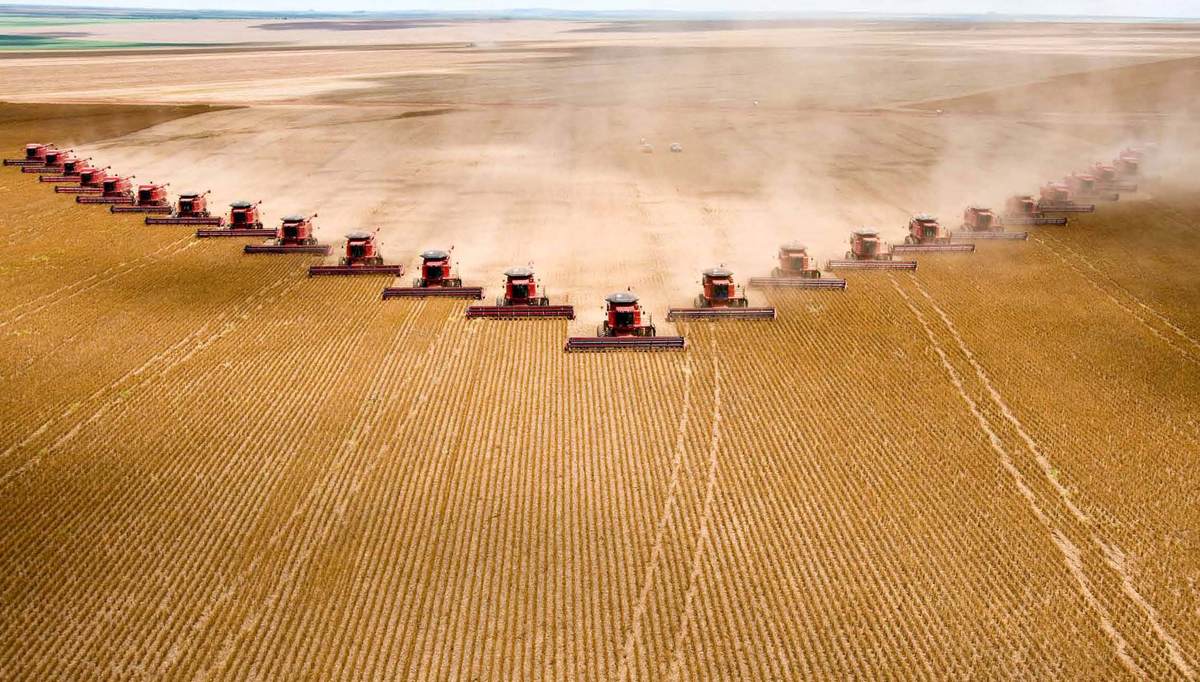 Henri Bureau/Sygma/Corbis
Henri Bureau/Sygma/CorbisTo live, every creature must eat. Supplying the food needs of 7 billion people has proven elusive thus far, despite dramatic intensification of agricultural production in the last century. The aggregate “footprint” of agriculture is massive: United Nations data suggest that some 5 billion hectares (more than 19 million square miles) of Earth’s land surface are used for croplands and livestock grazing. Despite that huge area converted from wild habitat to feed humankind, nearly a billion people are hungry and another billion persist tenuously, where a small shift in their circumstances would put them at risk of starvation. Across the globe, traditional village-scale agriculture—typically diversified and for local consumption—is being displaced by industrial monocultures grown for the export market. Irrigation is depleting aquifers and dewatering rivers. Livestock production is increasingly dominated by animal factories, concentrated animal feeding operations (CAFOs), which are an ecological and ethical outrage.
A Center-Pivot Irrigation Grid In Kansas
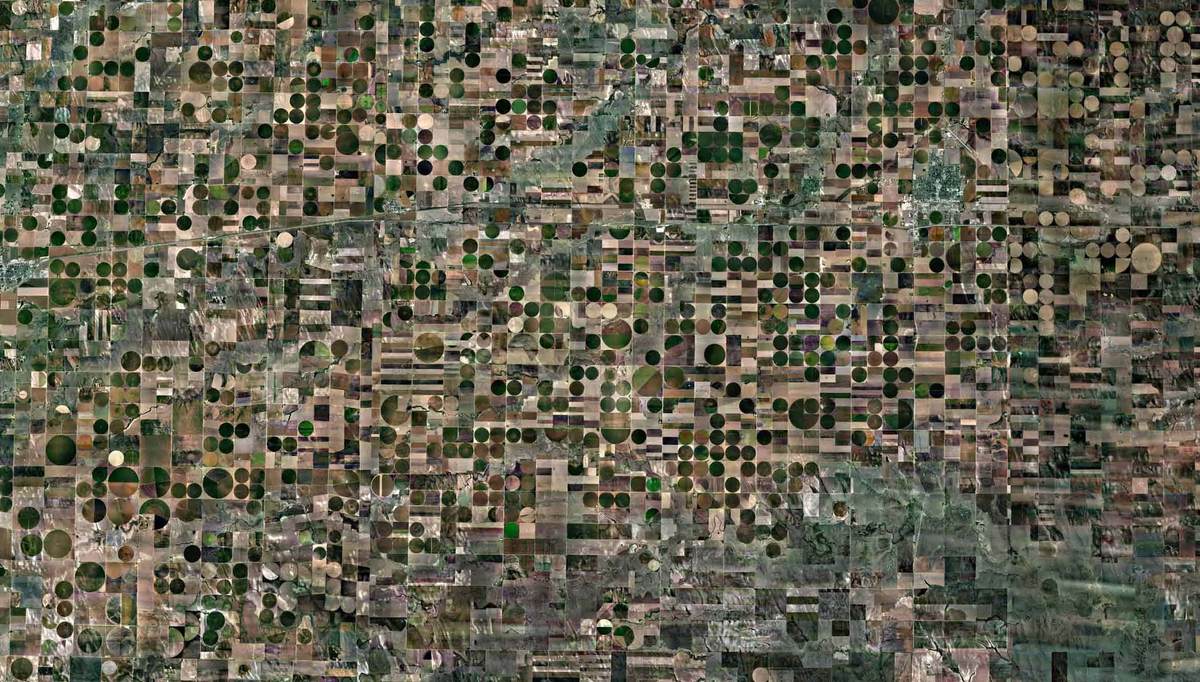 Google Earth/Image Landsat
Google Earth/Image Landsat"Assimilation . . . proceeds by biotic cleansing and the impoverishment of others: using up the soil and poisoning it; putting the fear of God into the animals such that they cower or flee in our presence; renaming fish “fisheries,” animals “livestock,” trees “timber,” and rivers “freshwater” so as to conceptually ground the human enterprise’s extermination and commodification ventures. The impact of assimilation is relentless, and it is grounded in the experience of alienation and the attitude of entitlement." —Eileen Crist
Greenhouses In Almeria, Spain
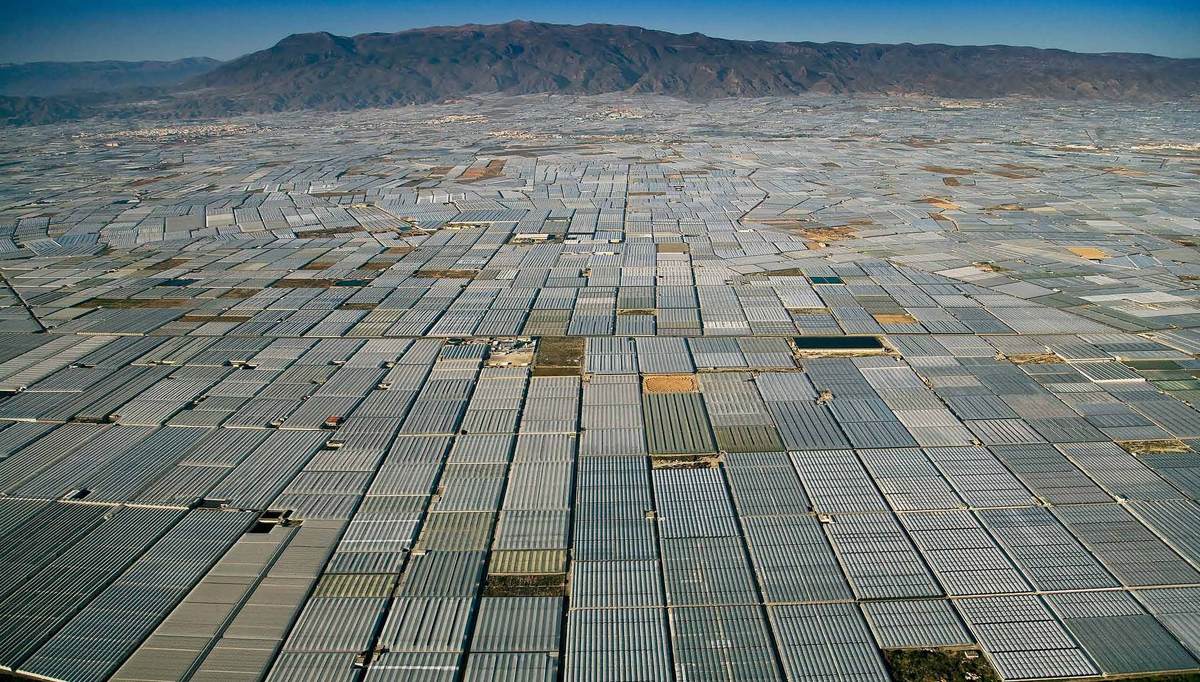 Yann Arthus-Bertrand
Yann Arthus-Bertrand"We are slaves in the sense that we depend for our daily survival upon an expand-or-expire agro-industrial empire—a crackpot machine—that the specialists cannot comprehend and the managers cannot manage. Which is, furthermore, devouring world resources at an exponential rate." —Edward Abbey
Pesticide Spraying Inside A Greenhouse In Nicaragua
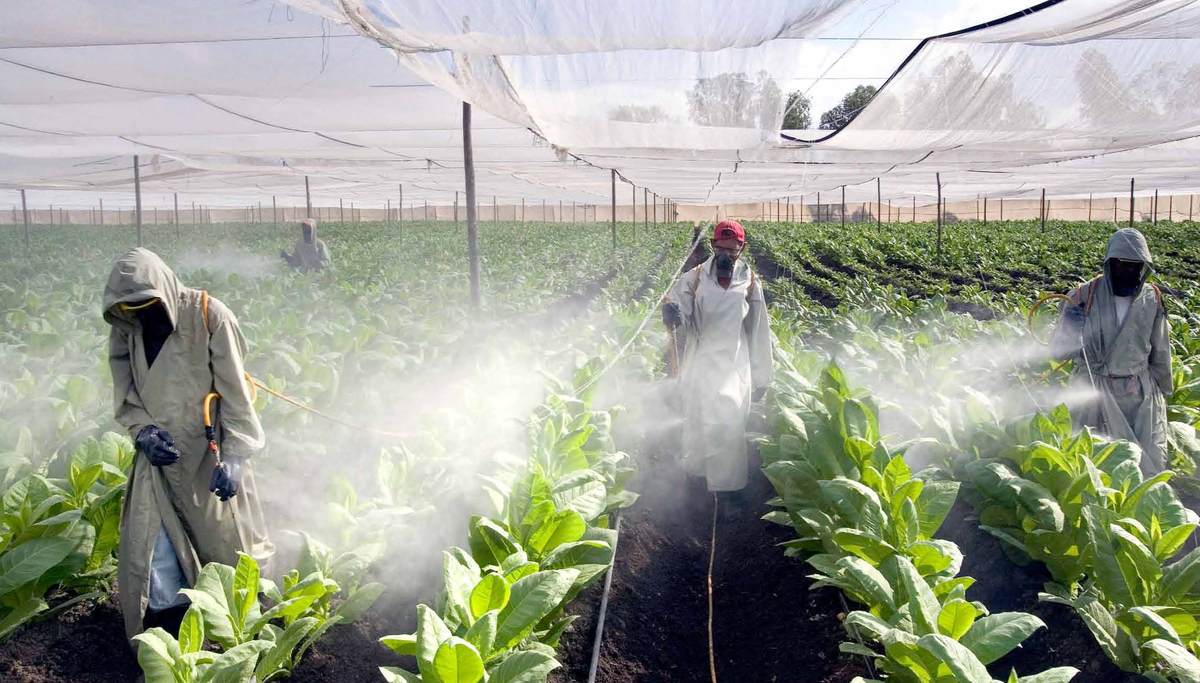 Peter Essick
Peter Essick"Why should we tolerate a diet of weak poisons, a home in insipid surroundings, a circle of acquaintances who are not quite our enemies, the noise of motors with just enough relief to prevent insanity? Who would want to live in a world which is just not quite fatal?" —Rachel Carson
Fields In China
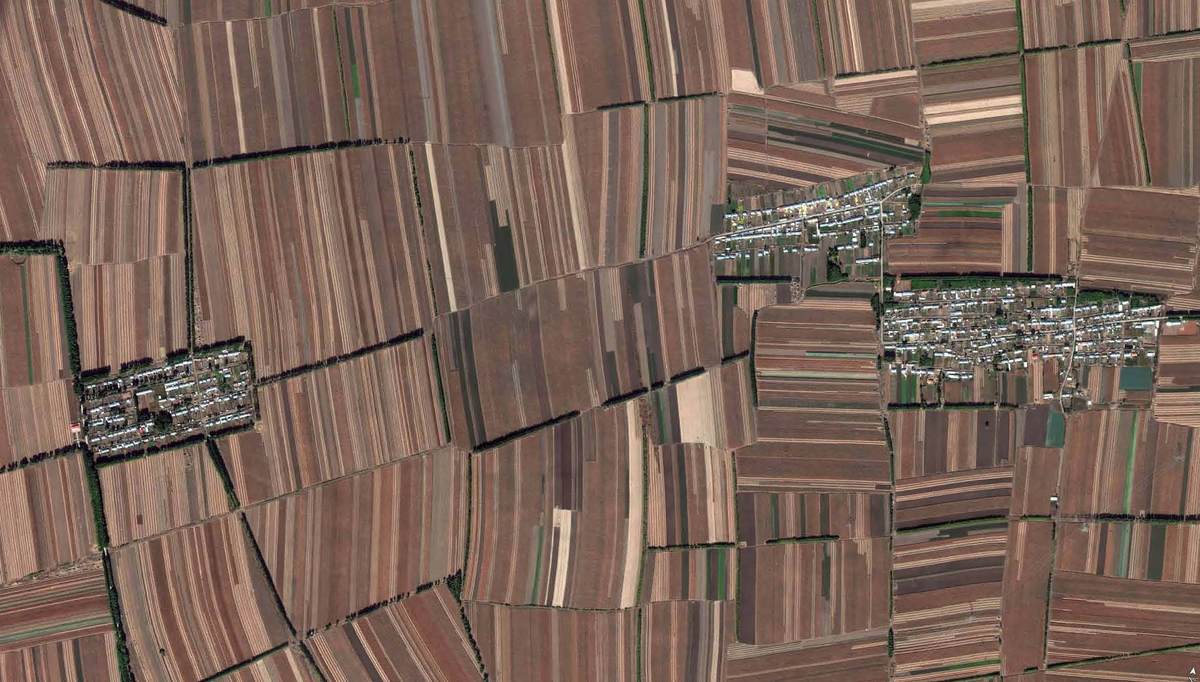 Google Earth/2014 Digital Globe
Google Earth/2014 Digital Globe"Globalization, which attempts to amalgamate every local, regional, and national economy into a single world system, requires homogenizing . . . locally adapted forms of agriculture, replacing them with an industrial system—centrally managed, pesticide-intensive, one-crop production for export—designed to deliver a narrow range of transportable foods to the world market." —Helena Norberg-Hodge
Erosion Along The Betsiboka River In Madagascar
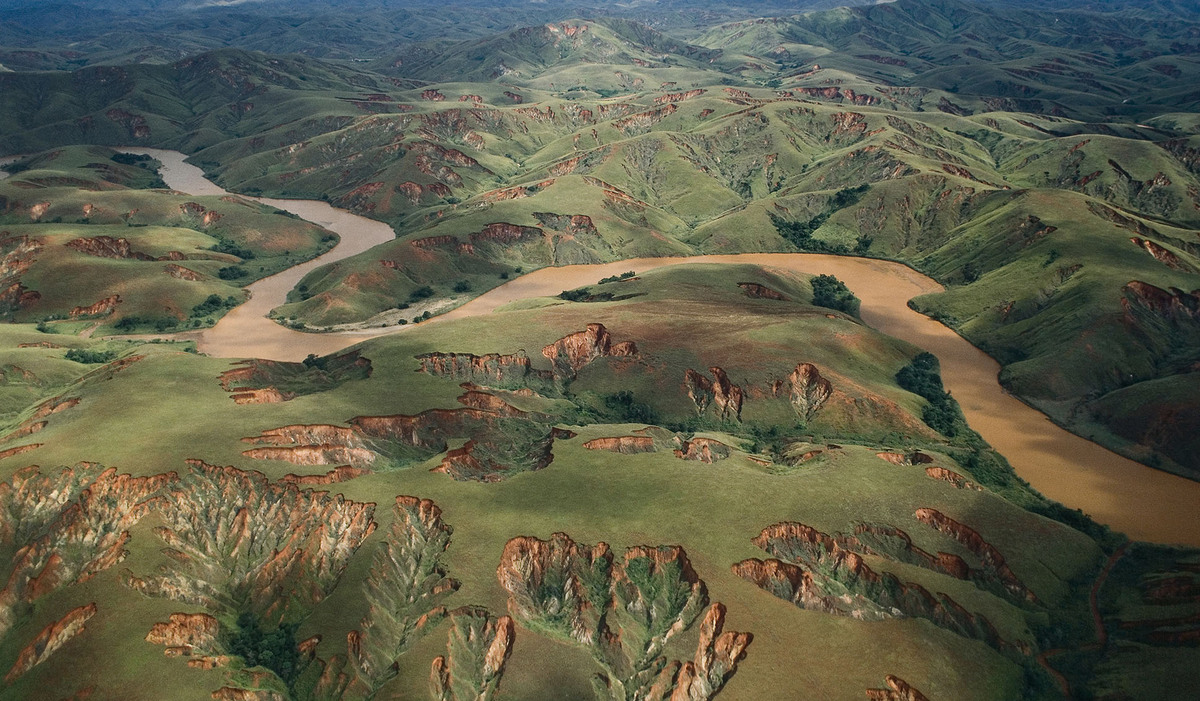 Corbis
Corbis"We stand, in most places on earth, only six inches from desolation, for that is the thickness of the topsoil level upon which the entire life of the planet depends." —R. Neil Sampson
Feedlot In Brazil
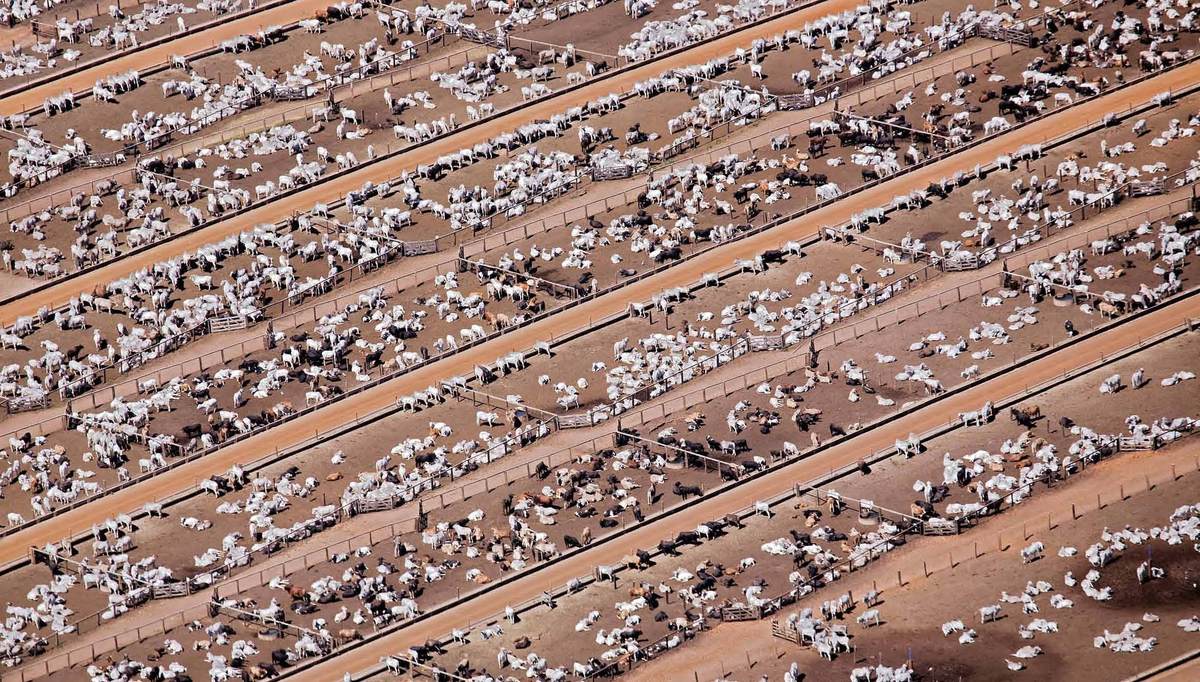 Peter Beltra
Peter Beltra"Despite the industry’s spin, CAFOs [concentrated animal feeding operations] are not the only way to raise livestock and poultry. Thousands of farmers and ranchers integrate crop production, pastures, or forages with livestock and poultry to balance nutrients within their operations and minimize off-farm pollution through conservation practices and land management. . . . Yet these sustainable producers, who must compete with factory farms for market share, receive comparatively little or no public funding for their sound management practices." —Martha Noble
Egg Factory In Idaho
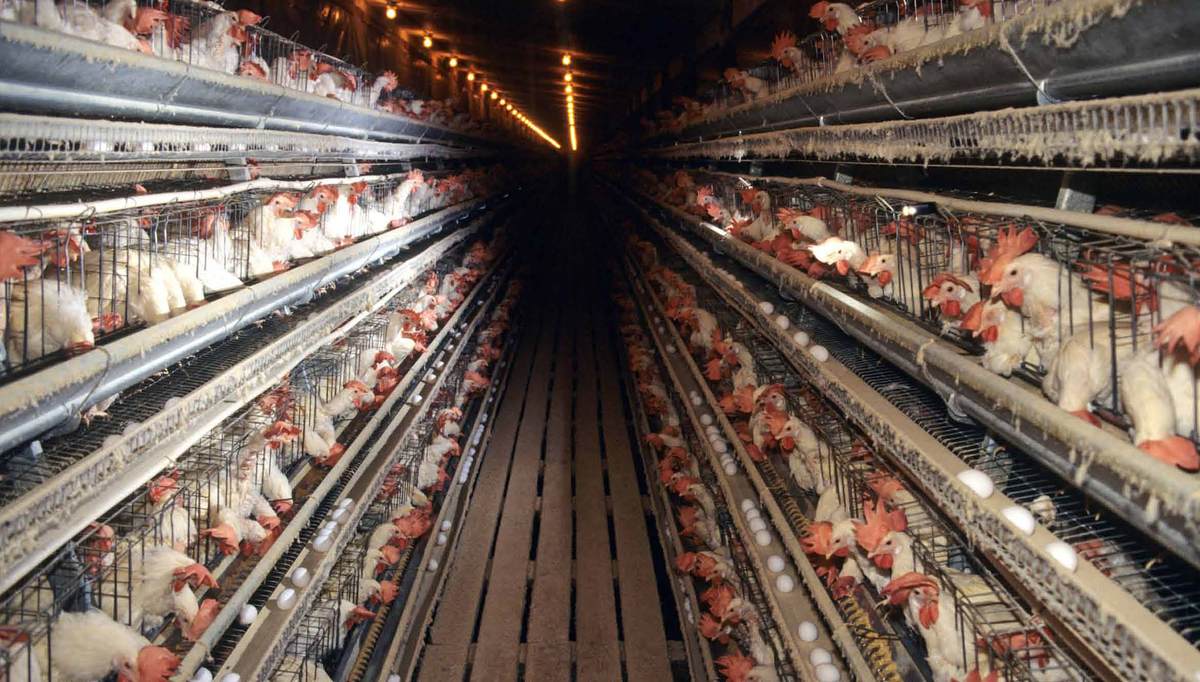 David R. Frazier, Photolibrary, Inc./Alamy
David R. Frazier, Photolibrary, Inc./Alamy"The billions of animals that are slaughtered and disassembled each year throughout the factory farm system are viewed as little more than profitable commodities and production units. . . .This mechanistic mindset about farm animals is even encoded in our laws. The important protections against cruelty and mistreatment in our federal Animal Welfare Act apply to pets, exhibition animals, and research animals, but not to our farm animals." —Andrew Kimbrell
Pork-Processing Facility In China
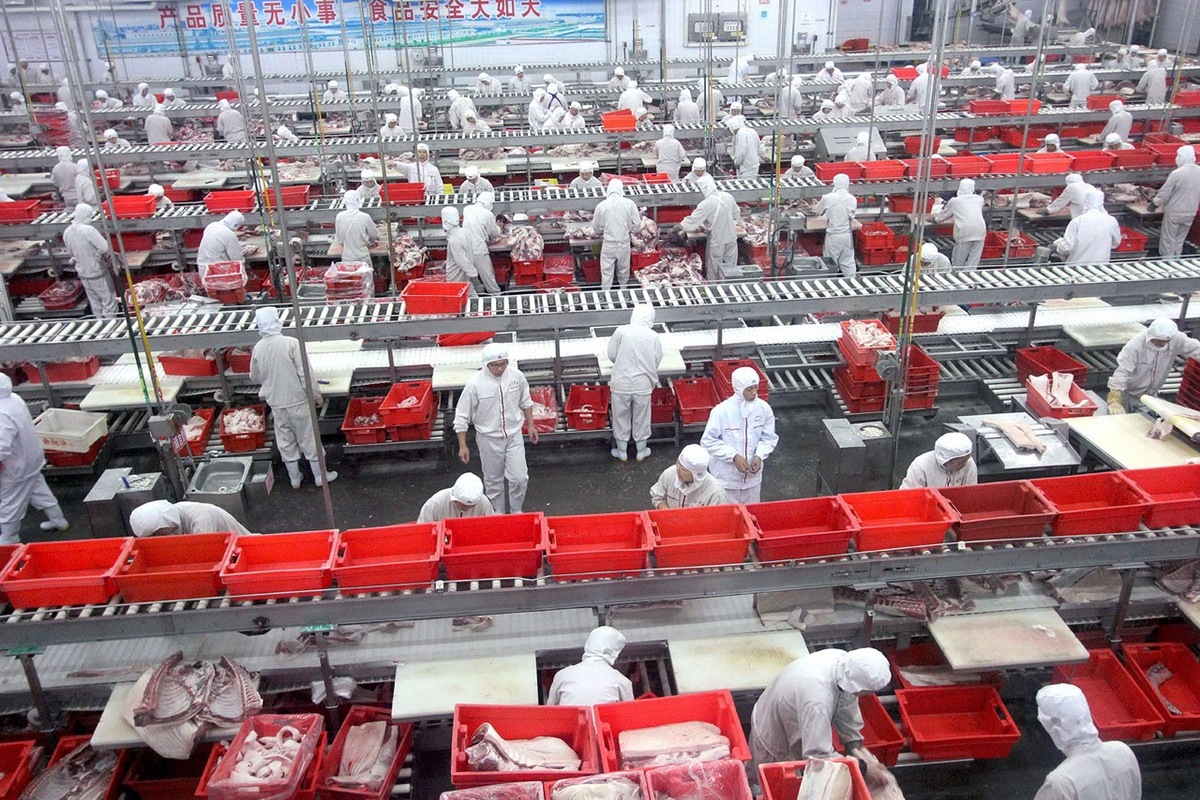 Alamy
Alamy"The greatness of a nation and its moral progress can be judged by the way its animals are treated." —Mohandas K. Gandhi
Automatic Feeding System In A Hog Barn In Southern Ontario, Canada
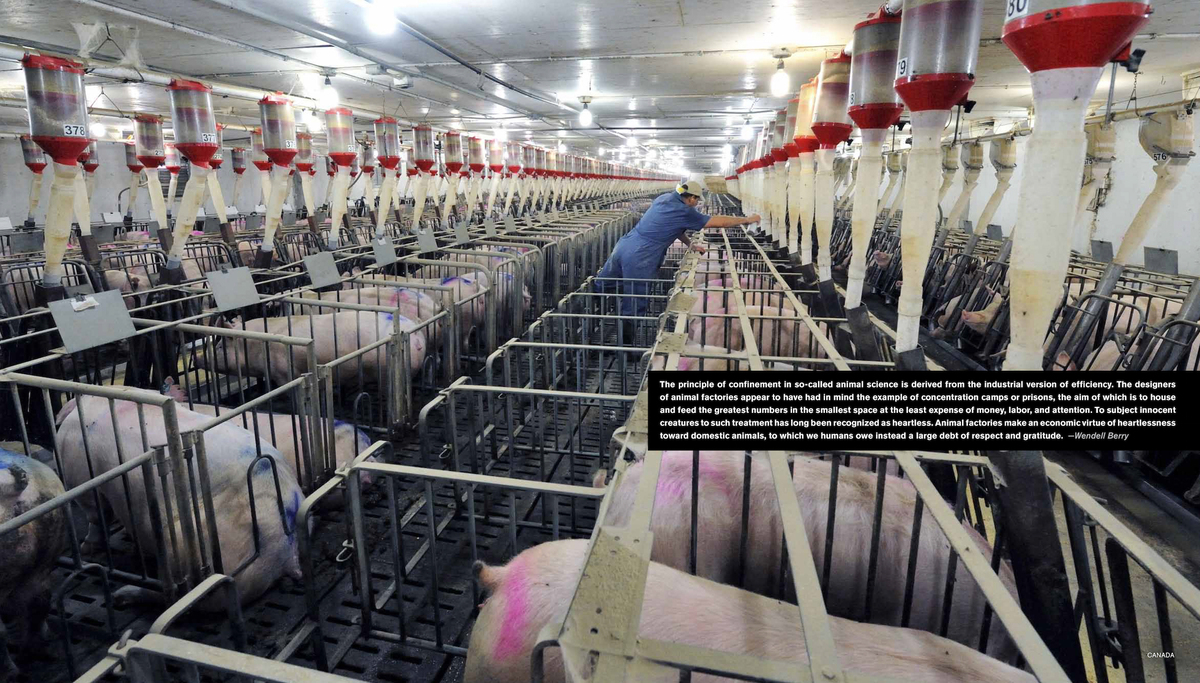 Greg Taylor/Alamy
Greg Taylor/Alamy"The principle of confinement in so-called animal science is derived from the industrial version of efficiency. The designers of animal factories appear to have had in mind the example of concentration camps or prisons, the aim of which is to house and feed the greatest numbers in the smallest space at the least expense of money, labor, and attention. To subject innocent creatures to such treatment has long been recognized as heartless. Animal factories make an economic virtue of heartlessness toward domestic animals, to which we humans we owe instead a large debt of respect and gratitude." ––Wendell Berry